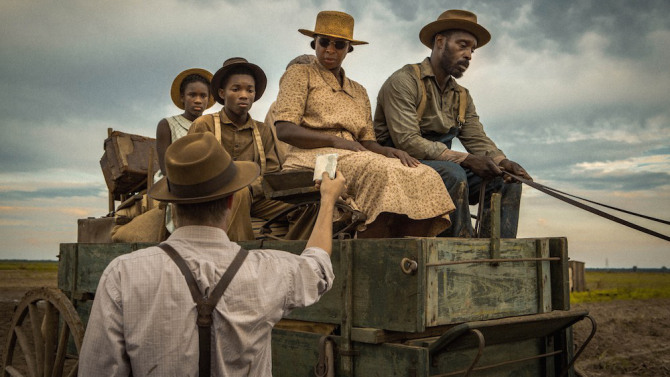Netflix and Cannes' spat shows just how archaic the movie industry can be
Cannes, canned

Cannes and Netflix have parted ways, with CEO Ted Sarandos revealing that a change to the film festival's rules means that none of its movies will be competing this year.
It was always the rockiest of relationships, so for many, Sandaros' revelation to Variety will come as no surprise.
When in 2017, the film festival premiered two Netflix Originals, Bong Joon-ho’s excellent Okja and Noah Baumbach’s stunning The Meyerowitz Stories, there were protests and booing.
Not at the content of the movies, but at what they represent - a new age of moviemaking that bypasses the big screen, where movies with big budgets and bigger stars don't get a grand theatrical opening but slip on to a streaming service.
In France, this is a big problem. While Netflix was opening up to the idea of showcasing its movies on the big screen, it was a law about home distribution that was a deal breaker.
In France, a movie released in theaters isn't allowed on to an on-demand platform, until 36 months after their theatrical release. 36 months.
France is one of the only places where it has made this law - and its reasoning is actually pretty sound: to protect the country's solid film-financing system.
Get daily insight, inspiration and deals in your inbox
Sign up for breaking news, reviews, opinion, top tech deals, and more.
But it's a law that's now looking pretty archaic in a time when on-demand services are upending the way movies are being financed and made. And it's this reason Netflix has decided to not even try and compete in Cannes as it go against its entire day-and-date movie releasing ethos.
Disruptive technology
If you create any piece of disruptive technology, then you will instantly have enemies. The whole idea of something being disruptive, means that it is changing a business model somewhere and taking the money out of the pocket of folks who have enjoyed that steady stream of income for years, sometimes generations.
It's happened to Uber and black-cab drivers, bitcoin and banks and Netflix is increasingly seeing it with the cinematic old guard.
Steven Spielberg remarked recently - while promoting Ready Player One, a movie enshrined in future-gazing technology - that he believes Netflix movies shouldn't be in contention for Oscars as they are TV bound.
It's this type of old-school thinking that is detrimental to change, at a time when movie making needs a jolt from somewhere. Yes, the box office looks healthy at the moment but it's dominated by sequels, remakes and very little in the way of original scripts and content.
The likes of Chris Nolan and PT Anderson are praised when their movies are released because they are filled with original thought. But they are the exception rather than the rule, when it comes to modern cinema.
Where we are seeing more original scripts and ideas is on the on-demand platforms. Netflix's I Don’t Feel at Home In This World Anymore was the Jury prize winner at Sundance. Mudbound, one of the best movies of 2017, made its debut on Netflix. The Big Sick, written by Emily V Gordon and Kumail Nanjiani, was Amazon produced.
The only way these movies were made was because of the on-demand subscription model that's behind Amazon and Netflix. This isn't going to change. Netflix is producing more movies than pretty much any other distributor around and Amazon is following suit.
France, and Cannes, should be admired for what they are trying to protect when it comes to cinema - the people that make the movies. But, as Netflix is proving, there are other ways to do this without shunning new distribution models.
Cannes is a festival worse off without movies from Netflix, and that's something that needs to change and fast. Unfortunately, while on-demand services are quickly disrupting the filmmaking world, those around it are still moving at a glacial pace.
- These are the best movies on Netflix right now
- These are the best Netflix sci-fi movies
Marc Chacksfield is the Editor In Chief, Shortlist.com at DC Thomson. He started out life as a movie writer for numerous (now defunct) magazines and soon found himself online - editing a gaggle of gadget sites, including TechRadar, Digital Camera World and Tom's Guide UK. At Shortlist you'll find him mostly writing about movies and tech, so no change there then.
